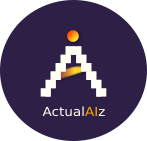If there’s one thing I’ve learned, it’s that life doesn’t always take you where you planned; it takes you where you need to be. My journey to a funded master’s offer from the University of Michigan, Ann Arbor, wasn’t straightforward. But it was deeply shaped by perseverance, a late but wholehearted academic pivot, and an unlikely intersection between sport and science.
I didn’t always plan to pursue graduate studies abroad. In fact, I made that decision fairly late in my undergrad at LUMS. At the time, my GPA was not exceptional, and self-funding was out of the question. Still, something in me refused to settle. I channeled that energy into one goal: to make myself a competitive candidate, no matter how far behind I felt.
That mindset led me to research. I spent my junior and senior years immersing myself in projects that pushed me intellectually and technically. One turning point came in the summer after junior year, when I was selected for a remote research internship with a faculty at the University of Illinois Urbana-Champaign. This opportunity enriched my research experience and dramatically expanded my academic horizons.
I’ve played competitive cricket since I was 10, and captained the varsity team at LUMS for two years. Cricket taught me how to lead, how to adapt under pressure, and how to stay resilient through setbacks. But I never imagined it would shape my academic path. In my senior year, I found a mentor in Dr. Ihsan Ayyub Qazi, who not only understood my interest in research, but also shared my love for the game. Our shared love for cricket sparked a research collaboration, blending my two worlds: computer science and cricket. We spent over a year developing an LLM-based system for the cricket world, a project that became central to my academic profile
My undergraduate journey taught me that sometimes, the most meaningful outcomes happen when you bring your whole self to the table. To my juniors reading this, remember one thing clearly: if something seems exceptionally challenging yet you remain convinced that you can achieve it, take it as a sign. That goal, that aspiration, is calling out for you to chase it.
